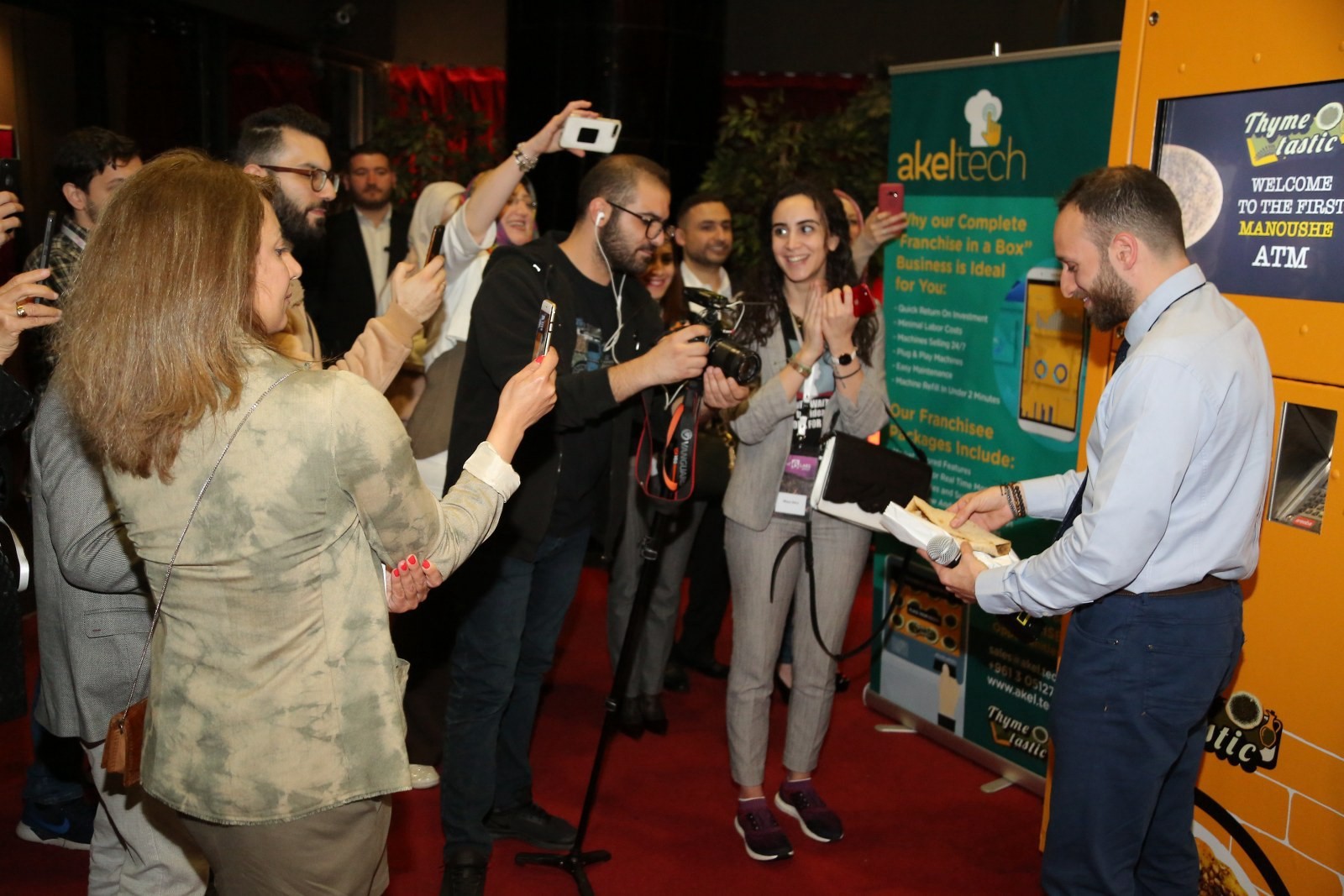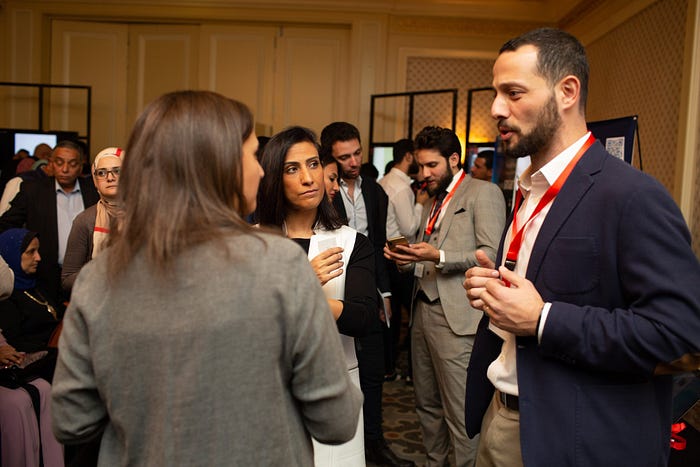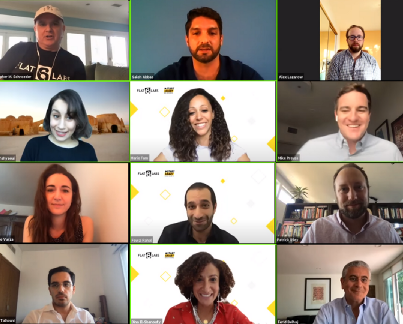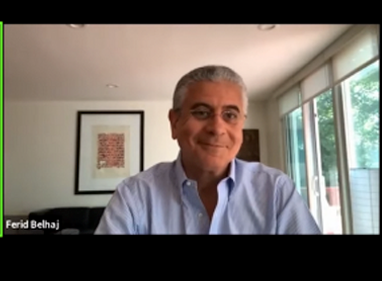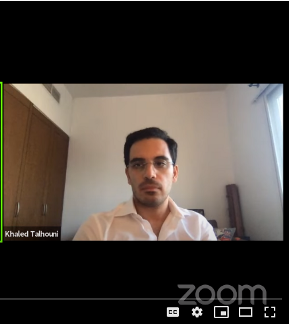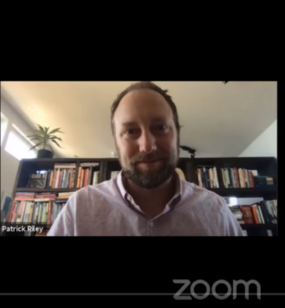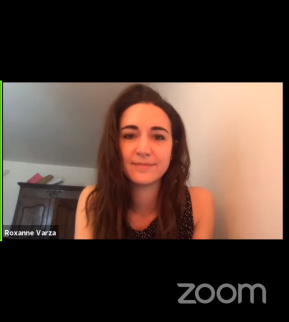Category: Tips & Tricks
Is the Global Femtech Industry Empowered Enough?
Women’s healthcare looks uncertain in the future. But, the femtech industry is still developing and you’ll find out why.
The lack of research into the health of women led to the need for femtech. Despite the fact that women spend $500 billion on medical costs each year, just 4% of research and development funding was allocated to problems that directly affect women. Cultural taboos that create barriers for women to get treatable illnesses may be directly responsible for this lack of investment in women’s health.
By the end of 2022, the Global Femtech Market is anticipated to be worth USD 28.77 billion. “You know a topic is hot when VC’s money goes into it once they see opportunities in a field,” mentioned Hana Besbes, the Investment Manager at Heal Capital in Germany.
The largest funders of health tech businesses that concentrate on issues affecting women’s health have been early-stage investors. Since 2015, VC funding for the Femtech industry has increased threefold, rising from just over $600 million to about $1.9 billion in 2017, according to CNBC.
In this post, we will be tackling the opportunities, challenges, and recommendations that were mentioned in our panel talk “The Current State of FemTech Worldwide” in partnership with Organon, which took place on August 10, 2022.

Opportunities that could lead to growth in the Femtech industry:
Turning startups from offline to online has its upside due to better visibility, constant accessibility, and brand development. “The next wave of femtech is what Sophie is trying to do here with Nabta Health, in how we can radically change the standard of care of those women,” emphasized Hana.
Companies specializing in gynecology, fertility, and pregnancy have received the most funding. Infertility was identified by the WHO as a disease and a public health issue, and its rate is steadily rising according to CNBC. With the amount of data and studies done on that, it’s been spoken about and therefore investors have an interest in helping startups tackle this issue through funding.
Challenges that professionals face in the Femtech industry:
Speaking of data and studies, there isn’t enough R&D that could help with clinical support. Women are underrepresented in clinical trials, and their concerns have been disregarded in medical device development according to MedCity News. “Deep tech innovation”, as Hanna calls it, is needed. She is looking for a startup that aims to create the biggest bio-market platform for women’s reproductive health. There are many things that could be done once this is achieved.
“We need more data… from their genetic data to their medication, reactions, compliances, and clinical pathways in order to comprehensively improve women’s health outcomes” shared Sophie Smith, CEO and Founder of Nabta Health.
Another challenge is that male investors lack adequate knowledge related to the femtech industry and its impact. With more awareness of the impact of Femtech products, investors, researchers, and business owners have a real opportunity to support this rising innovation trend and usher in a new era in women’s health.
“We need a lot more support from people who understand the need and value proposition of femtech companies at the early stages” shared Sophie.
If you want to close the gap in the Femtech industry, awareness is a crucial first step, but the problem goes far more profound. The industry needs further development in terms of investment in the R&D sector to access more resourceful data which is critical for any startup’s innovative tech product and service. Farah Kabir, Co-Founder of HANX, expressed that founders should discuss their ideas with as many people as possible as early on as they can so they can tweak and produce more wonderful products

If you’re a startup founder, find out what insights our panelists had to share based on their own entrepreneurial journeys:
Nour Emam, the founder and CEO of Mother Being shares this advice since she went through this hiccup of perfecting her service to avoid failing again. So, she decided to lift her business up by expanding and spreading more awareness about what her business is about with partnerships and workshops.
“Move fast even if you fail quickly so you can try again.” shared Nour.
Echoing what Nour said, Eric Dy, the Co-Founder and CEO of BloomLife, adds that a lot of founders choose to start by focusing on the product, which is obviously crucial, but don’t lose sight of your commercial plan. He emphasized this point so founders can remember to understand their market and any potential stakeholders who may need to support their efforts throughout their growth journey.
“You may have an amazing product that a patient might love and support, but without doctors on board or a way for people to pay for it as they normally would, then you’re going to have a hard time. Understand the full pictures and not get super obsessed with just the product ” mentions Eric.
Don’t miss our upcoming Femtech Accelerator Demo Day, a part of our Femtech Accelerator Program in partnership with Organon. It’s the first of its kind in the MENA region where you can have the opportunity to learn more about the industry and the 9 global startups that will pitch their innovative products in various sectors.
You can tune in to the Demo Day which will be live streamed on September 12, 2022 here.
Connect with us on Instagram, Facebook, Twitter, and LinkedIn for more information.
Written by: Dana El Melki

Looking for Funding? Here’s Why you Should Apply to Flat6Labs in Cairo
According to the Global Entrepreneurship Monitor (GEN) Report for the year 2020-2021, Egypt’s “Access to entrepreneurial finance” score went slightly down from 4.5 in 2019 to 4.4 in 2020, which can be explained by the tremendous challenges and pressures that the COVID-19 pandemic has imposed on the economy.
Flat6Labs has doubled down on its efforts to financially develop and support promising startups in Egypt; raising its cash seed offering to up to EGP1,500,000 and follow-on offering to up to EGP3,000,000 – in exchange for a maximum of 10% equity.
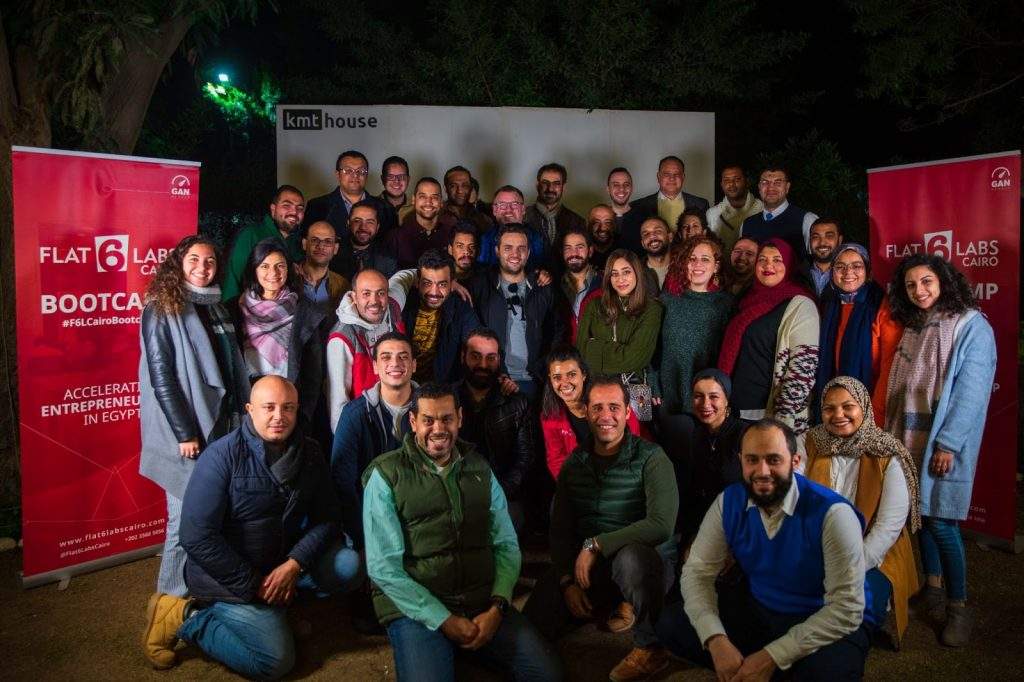
The all cash seed advance is meant to help startups cover their early expenses, grow their teams, and implement business development tactics that they learn during the Flat6Labs Seed Program in Cairo. While the follow-on funding is offered to selected startups after the program to help them scale their companies and tap into new markets.
Flat6Labs seed program does not only offer participating companies funding, but also entrepreneurship-focused training and mentorship sessions delivered by top industry experts and pioneers, regional and global networking opportunities, state-of-the-art office space, $300,000 worth of perks from partners such as Amazon Web Services and Microsoft, the biggest Demo Day, and many other services to equip entrepreneurs with all the resources they need to grow their businesses.
The Cairo seed program is funded by the EGP 207m Flat6Labs Accelerator Company Egypt Fund (FAC), which aims to invest in up to 100 early-stage startups during its 5 years investment period. The notable investors of the FAC fund are the International Finance Corporation, MSME Development Agency, Egyptian American Enterprise Fund, Egypt Ventures, and the latest significant addition to the fund, Sawari Ventures.
Ahmed Rosstom, CEO and Co-Founder of a Flat6Labs portfolio company in Egypt Wuilt, sharing his experience with Flat6Labs Seed Program in Cairo.
Flat6Labs has supported and trained 125 startups over 16 cycles in Egypt to date, and is currently accepting applications for its 17th cycle (Fall 2021 cycle). You can apply to join the upcoming cycle in Cairo here.
Here are 5 key things you can do on Flat6labs’ New Website
In March 2021, Flat6Labs celebrated the beginning of a new era for the company by announcing the consolidation of its renowned startup programs in MENA into one unified brand and introducing a new streamlined visual identity as well as a brand new website that offers a consistent and enhanced experience for entrepreneurs from all across the region and beyond.
Through the Flat6Labs website, entrepreneurs can now learn more about application updates, program offerings, funding opportunities, and startup events from across the MENA region – coming in three different languages: English, Arabic, and French. Whether you run an early-stage startup or you like to stay updated on the ever buzzing entrepreneurial scene, here is a list of the five most important things you can do on Flat6Labs new unified platform:
Apply to any of our regional programs
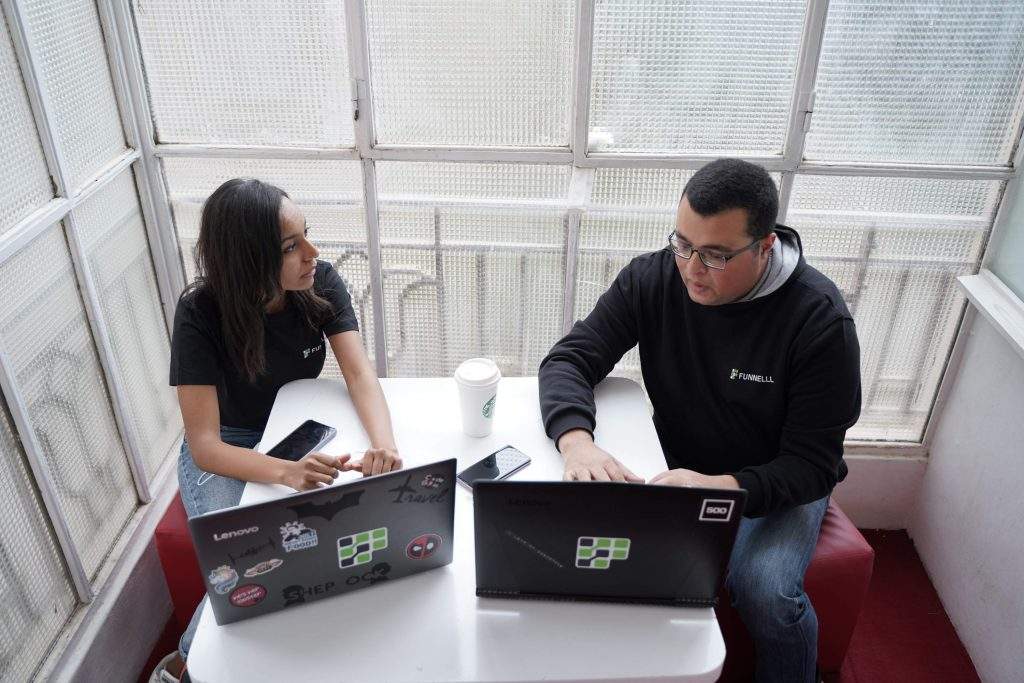
Instead of having to go through a number of websites to see which one of Flat6Labs programs in MENA is accepting applications, you can now easily check our open startup programs and apply directly to any of the many available programs in our different locations, all on one platform.
You can also learn about the start and end date of each program cycle as well as application deadlines. Head over to our Apply Now page to learn more.
Explore all of our different program options and locations
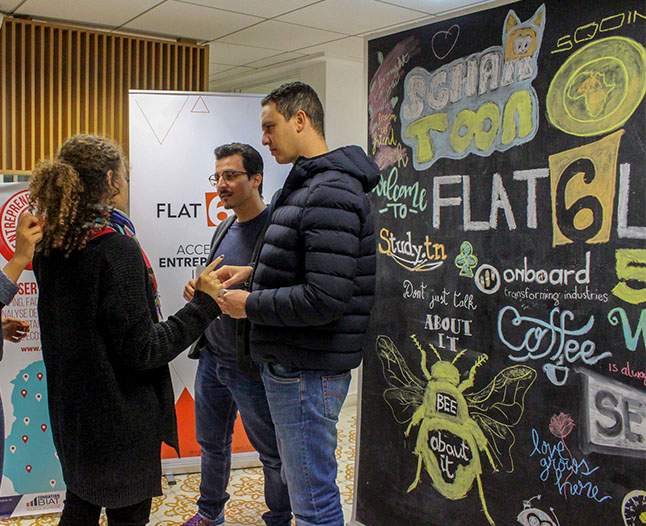
Flat6Labs new and improved website offers entrepreneurs and startup founders a unique and seamless experience, helping them navigate through the many program options and locations available at Flat6Labs and choose the one that best fits their startup needs depending on the stage they’re at, target market, and the location of their business operations.
Check out the Programs page for more details on the requirements, program offerings, selection process, and locations of all of our active startup programs.
Discover 300+ startups from across the region
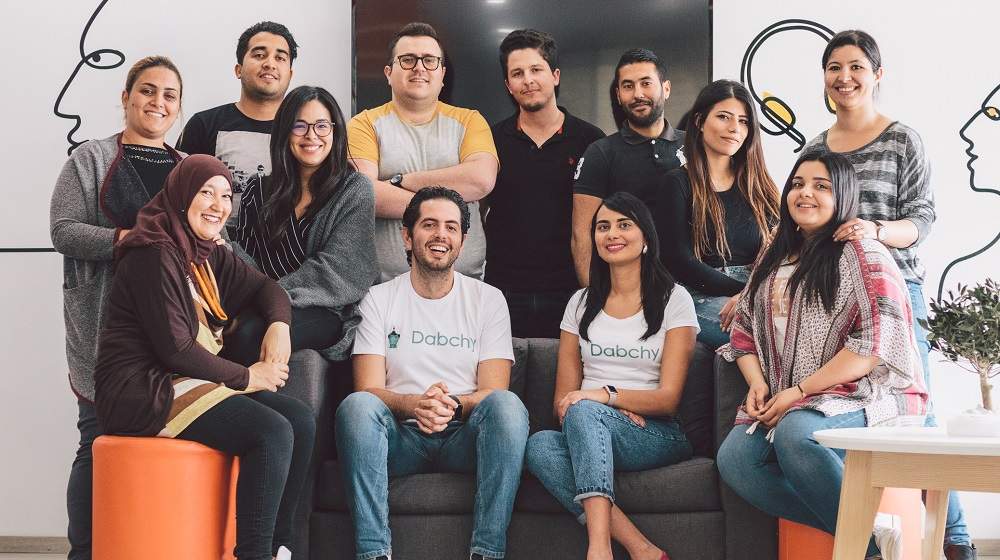
The Startups page is 100% worth the visit and arguably the most intriguing, featuring a promising lineup of more than 300 portfolio companies coming from across MENA that have developed both software and hardware products in a vast array of sectors including Fintech, Edtech, Healthcare, SaaS, AI, Proptech, E-commerce and more.
This part of the site basically serves as a startup directory, where visitors can discover Flat6Labs companies by location, program type, and year of graduation. They can also learn all about the innovative solutions offered by the startups and take a look at their respective websites.
Read the latest insights
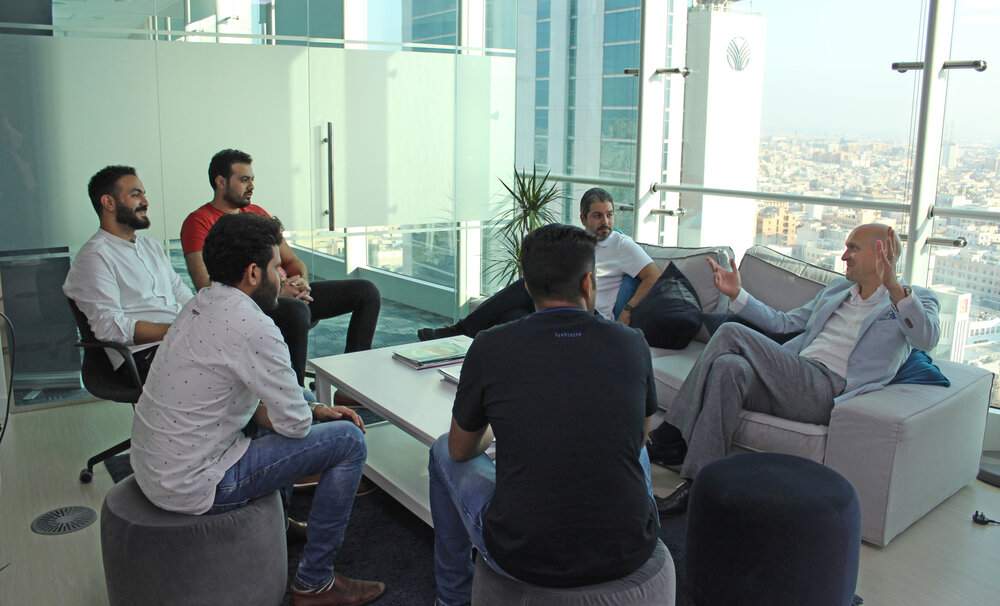
Whether you’re a budding business owner or an experienced entrepreneur, taking some time to read what’s going on in the industry is essential. Flat6Labs Insights page offers a wide variety of helpful reads on topics ranging from startup news and success stories to business tips and tricks and industry trends.
The Insights page is your new digital hub for all entrepreneurship and technology information from all over MENA, and it’s definitely worth looking at.
Join our growing team
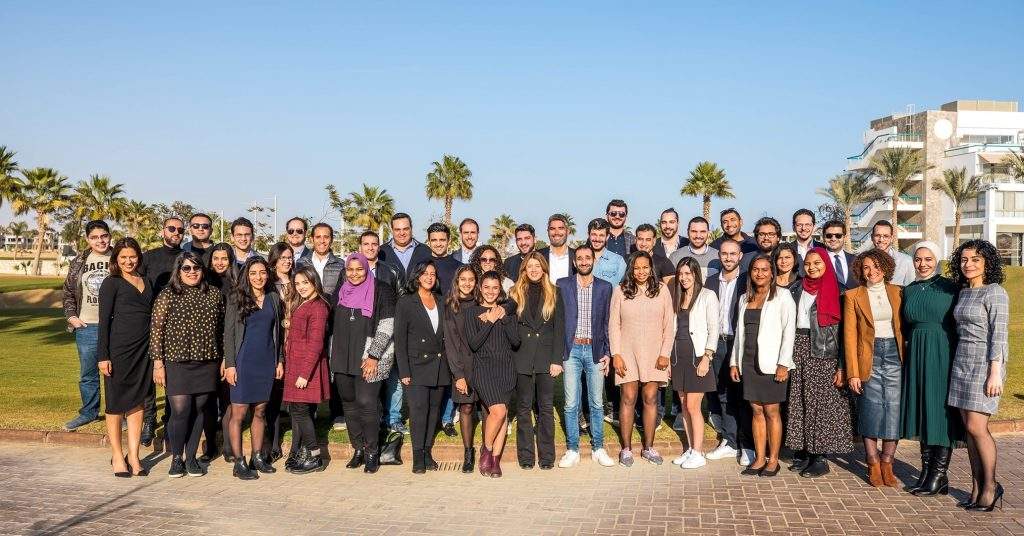
If you are looking for an opportunity to challenge yourself, learn new skills and get the chance to do the kind of work that adds up to something meaningful, check out the Jobs page featuring current career opportunities across our regional offices along with the attractive benefits of working with Flat6Labs.
Check out our revamped platform with highly curated content that has been specifically intended to fit the needs of our community. Other pages that are worth checking include Investors, Mentors, Perks, and a FAQ section with answers to almost all the possible questions you might have regarding our programs.
Here Are Four Tips On How to Get Your Startup Its First Customers
- Launching a new solution is never easy, but getting your early adopters amped up when it comes to your innovation isn’t a piece of cake; it also isn’t a far-fetched dream. Your early adopters will most likely be risk takers, people who trust you personally, and people who actually see potential in your innovation and great benefit to their lifestyle or business. The question that often lurks around many founders and startup teams is, how do we get those early adopters? Is it through marketing, social media, referrals, testimonials, personal relationships, what exactly is it that works across the board and makes up for a solid list of customers/clients with a high possibility of retention. Also, how can we do it? The answer is simple.
Leverage your existing network and continue growing it
The network you have developed over the years with people in different industries, should be your first place to look for potential clients/customers. These are the people you’ve known personally, and people who will add value to what you are offering by giving you all kinds of honest feedback that you will need to work on your solution. While this network can be used for “beta” testing, it can also be used for referrals, which brings us to the second point.
Utilize word of mouth and incentivize it

Your best customers/clients, are your first. Give them your ultimate best, and reward their efforts to make your solution better and spread word about it. Whether what you are offering is a B2B or B2C solution, this method works wonders. Give them discounts, promocodes, credits, however you may call it, just make sure to keep those who believe in you from the start.Spend money on digital marketing and know which platforms work the best
While your best bet is your network, but it is also important to gain trust from those who you don’t know because it validates your product-market-fit, and brings it to a new depth. Use email marketing, Facebook, Youtube, Instagram, or LinkedIn campaigns, and see which has the highest conversion rates and double down on it. In other words leverage growth hacking strategies to the best of your abilities.
Listen and act accordingly
It is extremely important that you treat your first customers with extreme care and listen to their feedback on a regular basis. They will always offer you unbiased feedback on how to improve your solution because there is always a bug that needs to be fixed, changed, or removed. Listen carefully and keep it up. Your first customers are your best bet, but your late adopters are the ones who will determine how far your startup can go.
Flat6Labs programs are open for applications across MENA. Apply now!
8 Best Tips From Our 8 StartSmart Webinars
Over the past few months, countries and regions have witnessed a global lockdown. While we were forced to stay home, we’ve decided to host eight webinars that would help the startup ecosystem and its key players take part in rebuilding it. This was done mainly through regional and global interviews with renowned investors & entrepreneurs, who have shed light on unique aspects of the COVID-19 pandemic and its regional & global impact on startups. We’ve decided to share them with you in a bite-sized article, with the eight best tips from our 8 #StartSmart Webinars.
“The pandemic heightens the need for inclusive services & products.” — Christopher Schroeder, a Global Investor
As we’ve all seen, this pandemic and the move to online communication, transactions, consultation, etc… has deepened the need for our economies to be inclusive of those who don’t have access to such technologies. Entrepreneurs should cease this opportunity to create solutions that bring inclusivity to a new level, Chris said.
Read more about our 1st Webinar here: “How to Take Off Your Startup During COVID-19 Outbreak”
“Startups In the Frontier Ecosystems Need to Think Globally.” — Alexandre (Alex) Lazarow, a global investor and author of “Out-Innovate.”
Alex elaborated that startups in growing economies need to think of how their startup can expand globally or regionally when they are just starting out. It is important to create a solution that could be adapted to different cultures and economies because it will facilitate your growth. He highlighted that most of today’s unicorns had going global at their core from the very beginning. Entrepreneurs need to think about how you can build teams that communicate efficiently across the world, and how they can build that global muscle from day one. Also, the pandemic is enabling entrepreneurs to reach out to global investors without the need to travel. This is a chance for them to raise money and approach remote investors.
Read more about our 2nd Webinar here: “How To Out-Innovate.”
“You don’t need to be in silicon valley to do something great.” — Amira Yahyaoui, MOS’ Founder
An entrepreneur should first and foremost be building for the experience, the journey, and changing people’s lives. Entrepreneurs need to realise that wherever they are in the world, there are problems that require innovative solutions, which will ultimately change people’s lives, hence, “you don’t need to be in silicon valley to do something great,” Amira said. She added” “the only interesting thing about silicon valley is the technology and the people,” and if you can read books, watch webinars, and listen to podcasts coming from the silicon valley, you can start anywhere.
Read more about our 3rd Webinar here: “Building a startup in Silicon Valley”
“Send consistent updates.” — Mike Preuss, Co-founder & CEO of Visible.vc
Mike said that in one of their surveys, they have discovered that founders are more likely to get investments if they are consistent with their reports to investors, in fact it increases their chances by %300. During the COVID-19, investors will likely be looking at startups that have a record of maintaining their reports. Most founders can’t raise because they don’t update investors regularly.
Read more about our 4th Webinar here: “Impactful Communication with Investors During COVID-19”
“If you want to see long term, positive change, you need to commit yourself to positive change.” — Roxanne Varza, Director of Station F
While the pandemic has held most of us hostage in our homes, it has provided an opportunity for the environment to get better. If we want it to keep getting better, we need to find solutions to do that, while still living our normal lives. COVID-19, on the good side of things, has provided us with a lot of opportunities that need to be explored by our aspiring entrepreneurs.
Read more about our 5th Webinar here: “Opportunities and Lessons Learned”
“Ask your customers/clients what they are doing, not what they need.” — Patrick Riley, CEO of the Global Accelerators Network (GAN)
Lots of businesses of varying sizes have changed their business models overnight to cope with pandemic, and all of them are dealing with new challenges. If you can ask them what they are doing, know the services they are offering, you can most definitely know & assume their challenges/problems, and develop/adapt your offerings to help them. Patrick added, “Your solution must always be relevant.” You can research different segments and find your “sweet spot,” and start developing a prototype or even launch a startup that is revolutionary, but no one wants because it is not relevant. When you start a research to create a product/service, think of how long it can stay relevant to people and businesses.
Read more about our 6th Webinar here: “Seed-stage Startups: A Global View”
“Find the right balance between human clustering and individual functions.” — Khaled Talhouni, Managing Partner of Nuwa Capital
Some tasks will require human clustering to be finished effectively, like creating a new innovative product/service. However, there will be tasks that require individual efforts, which could be done more productively from home. Startups need to find that balance between taking their jobs home, and clustering to innovate. Khaled Talhouni, Managing Partner of Nuwa Capital
Read more about our 7th Webinar here: “Building In the New Normal”
“Young entrepreneurs who have ideas should move ahead & do them.” — Ferid Belhaj, Vice President of World Bank MENA
Young entrepreneurs in MENA need to have the ambition to go way beyond what they think is possible because new tech must spread everywhere, Ferid said. He also noted that the market will judge the entrepreneurs’ projects, and whether it can absorb their products or not. Entrepreneurs need to do what they feel will work, and see for themselves if it actually solves the problem.
Read more about our 8th Webinar here: “The World Is A Village: World Bank Response to Covid-19”
The good thing about all these tips is that they are effective during the pandemic, post-pandemic, and in the face of any other economic recession. Make sure to utilise them to the best of your ability, and perhaps share it with your friends?
StartSmart 8th Webinar Recap: The World Is A Village: World Bank Response to Covid-19
On our eighth and last Flat6Labs StartSmart Webinar, we hosted Ferid Belhaj, Vice President of World Bank MENA, interviewed by Dina el-Shenoufy, Flat6Labs’ CIO to discuss World Bank’s response to COVID-19 globally and specifically in MENA. Ferid offered us his unique perspectives on how to tackle #COVID19, and how to create more opportunities for MENA startups. This is our full recap of the webinar.
“The world is a village”
Ferid said, one needs to find the right balance between squeezing out the best of the village that the world is becoming, and some of the possible negative aspects of this.
“Globalisation is fundamental”
Globalisation has helped us stay connected & work twice as much as we used to work from offices, and we need to push the globalisation of technology if a similar crisis ever comes to be, Ferid added.
“The World Bank has committed $160bn to MENA”
Since the crisis started, the World Bank committed $160bn to fast track financing facilities to help countries around the world to manage and deal with the health dimension of the crisis; to help the backbone of economies: SMEs; and to offer social protection for vulnerable people due to COVID-19.
“Young entrepreneurs who have ideas should move ahead & do them”
Young entrepreneurs in MENA need to have the ambition to go way beyond what they think is possible because new tech must spread everywhere, Ferid said. He also noted that the market will judge the entrepreneurs’ projects, and whether it can absorb their products or not. Entrepreneurs need to do what they feel will work, and see for themselves if it actually solves the problem.
“States in MENA need to be an enabler for startups”
“MENA needs to take care of itself,” Feird said. While we are trying to help countries, entrepreneurs and vulnerable families, states need to be the enabler that pushes everyone to do their best. States need to push out reforms that help startups. In some of Ferid’s talks with government officials from around MENA, they said that they are starting to recognise that they should have invested more in innovative solutions.
“Investment in new tech is never ever a lost investment”
Investors who have the resources and ability to invest in new technologies, need to be aware that it is their responsibility to help startups who are suffering because of the pandemic. They also need to be aware that an investment is never a lost investment, something will always come out of it; be it a new solution or a pivoted business model, something can always happen that can transform the way we live.
Make sure to join our upcoming Flat6Labs Cairo Spring 2020 Demo Day, June 24th. For more information and to register, click here.
StartSmart 7th Webinar Recap: Building In the New Normal
Our seventh Flat6Labs StartSmart Webinar was co-hosted by Khaled Talhouni from Nuwa Capital, with our own CEO, Ramez El-Serafy, to discuss the changing definition and implications of building companies and what this means for the MENA region
“Human clustering is a big part of accelerated innovation” — Khaled
Historically, Khaled said, that there has been a large dependence on human clustering to achieve innovation. It, as he said, plays a significant role as one of the economic engines. There is something about the existence of a people in a dense environment that cannot be replicated virtually.
“Find the right balance between human clustering and individual functions” — Khaled
Some tasks will require human clustering to be finished effectively, like creating a new innovative product/service. However, there will be tasks that require individual efforts, which could be done more productively from home. Startups need to find that balance between taking their jobs home, and clustering to innovate.
“Our region is super resilient” — Ramez
Over the past decade, we’ve seen and learnt how startups have been capable of surviving the many crises, Ramez said. Our applications during 2011 & 2012, have actually doubled every cycle, and that is a great indication of how crisis can breed innovative solutions, great adaptability, and resilience.
“Startups need to ask themselves what is different” — Ramez
During these times, startups will be either thinking about pivoting quickly to stay relevant, pushing forward with their existing solutions, or shutting down to cut the losses. Startups need to think about whether there is an actual opportunity to pivot, by changing their business model, creating partnerships, etc… They also need to think about how they can utilise their current solution to temporarily benefit from the situation. The crisis will end one day, so you as a startup founder, need to to think about your solutions and their viability in both the long and short term.
“There is going to be a shift in private capital” — Khaled
Businessmen will be looking for ways to invest their money in more transparent ecosystems, and they will head for micro investors and micro fund managers to take off the hassle of due diligence off of themselves. AngelList is the first iteration of that.
Make sure to join our upcoming Webinar on June 9th, 2020, Co-hosted by Ferid Belhaj of The World Bank MENA and our own Chief Investment Officer, Dina el-Shenoufy.
For more information and to register, click here.
StartSmart 6th Webinar Recap: Seed-stage Startups: A Global View
In our sixth Flat6Labs StartSmart Webinar, Patrick Riley, CEO of the Global Accelerators Network (GAN) shared his global insights on seed stage startups during and post COVID-19. Interviewed by Flat6Labs Beirut Managing Director, Fawzi Rahal, Patrick talked about the challenges and opportunities for startups to access the human and financial capital they need to solve problems and create impact during these challenging times.
“Acceleration doesn’t have to be in person.”
COVID-19 pandemic has proved that virtual acceleration is more than just possible. A testament to that is the number of accelerators in GAN, who have shifted virtualised their models. “The functions of an accelerator haven’t changed, but the mechanisms did change,” Patrick said.”
“Investors have the money.”
You need to prove to investors why your company is safe, stable, and most importantly, taking off during this season. Most investors nowadays think of whether they should wait for the storm to pass, or if they should doubledown on investments they have already made. In order for you as a startup to get their funds, you need to show growth, ability to scale, and high adaptability to COVID-19.
“Ask your customers/clients what they are doing, not what they need.”
Lots of businesses of varying sizes have changed their business models overnight to cope with pandemic, and all of them are dealing with new challenges. If you can ask them what they are doing, know the services they are offering, you can most definitely know & assume their challenges/problems, and develop/adapt your offerings to help them. Patrick added, “Your solution must always be relevant.” You can research different segments and find your “sweet spot,” and start developing a prototype or even launch a startup that is revolutionary, but no one wants because it is not relevant. When you start a research to create a product/service, think of how long it can stay relevant to people and businesses.
“5-year-old companies are the ones who will be creating jobs.”
With many companies laying off people due the COVID-19 pandemic, the unemployment rates have skyrocketed in the past months across the globe, but startups, as always, can flatten the curve. Patrick said that according to their surveys and research that companies that are 5-year-old or less are capable of creating new jobs much more than 6+ year-old startups.
“You are not your business.”
The most successful entrepreneurs and founders didn’t make it from the get-go, some had to struggle a bit to finally create that one innovative solution that is bound to change the world. Failing at one venture, two, or three doesn’t make you a failure. Learning when to quit, pivot, or try something entirely new is what shows your strength and resolve.
“There is something about real life interaction that virtualness cannot replicate.”
Partick has elaborated that now might not be the best of times to find a co-founder for your startup, and that you need to do it in real life because you get to know that person in front of you when you do that.
“If you don’t know where you are going, any road will take you there.”
Tell your team where you are going today, and be flexible enough to adapt & change your plans next week if necessary, but know that in the end you will get “there.”
Read Patrick’s recommended blogpost entitled “The One Chart That Gets Me Up In The Morning.”
Make sure to join our upcoming Webinar on June 2nd, 2020, Co-hosted by Ramez El-Serafy, CEO of Flat6Labs, and Khaled Talhouni, Managing Director of Nuwa Capital. For more information and to register, click here.
StartSmart 5th Webinar Recap: COVID-19: Opportunities and Lessons Learned
In our fifth Flat6Labs StartSmart Webinar, Roxanne Varza, Director of Station F exposed what the COVID-19 pandemic offered and still has to offer to startups in general, no matter where they are: MENA, Europe or US. This crisis is changing the landscape of the startup and tech ecosystem, and Roxanne & Faten Aissi Flat6Labs Tunis Marketing & Outreach Manager discussed the lessons learned and how innovation tackled some of the most severe aspects of the quarantine in Health, entertainment, WFH and education.
Take advantage of talents that have been laid off around the world
Due to the current economic crisis, many startups and corporates are laying off people to maximise the business’ chance of surviving the economic recession. So they are laying off people, this is where if you as someone just starting out or your business is growing rapidly can utilise this chance to hire remote employees. This is an opportunity for you because you can get a magnitude of experienced people, who can help your business grow and scale, remotely.
Customer service is essential the more you grow
Understanding that your small team will not be capable of always answering questions, receiving complaints, or following up with magnitude of people is important to knowing when to outsource your customer service or build a team dedicated to just that.
Companies needn’t be ashamed of downsizing, but someone needs to take responsibility
During the pandemic, many companies went the route of laying off people, but taking responsibility for your business operations, means that you care for business, your clients, and your staff. People can grasp the reality they are in, but they need to be assured that they were worth every resource the company has put into hiring, training, and employing them. It is more than just a nice gesture or politics, it is honest and responsible.
If we want to see long term, positive change, we actually need to commit ourselves to positive change
While the pandemic has held most of us hostage in our homes, it has provided an opportunity for the environment to get better. If we want it to keep getting better, we need to find solutions to do that, while still living our normal lives. COVID-19, on the good side of things, has provided us with a lot of opportunities that need to be explored by our aspiring entrepreneurs.
Always be dedicated & focused
If you start something, finish it. Don’t get sidetracked, Work until your vision has become your reality, but until then, keep your focus on one project at, one startup at a time.
Make sure to join our upcoming Webinar on May 19th, 2020 with Patrick Riley, CEO of Global Accelerator Network along with Fawzi Rahal, Managing Director of Flat6Labs Beirut. For more information and to register, click here.
StartSmart 4th Webinar Recap: Impactful Communication with Investors During COVID-19
In our fourth Flat6Labs StartSmart Webinar, Mike Preuss, Co-founder & CEO of Visible.vc along with Marie Therese Fam, Managing Partner of Flat6Labs Cairo, discussed how startups can approach investors virtually but effectively during the pandemic. Mike and Marie highlighted how you can leverage KPSIs and metrics to win over investors, and how it is virtually possible to communicate all of that online.
Cash Has Never Been More King than today
How you will be managing your burn rate in the upcoming months is much more important than how much you are growing nowadays. Investors will be looking at your ability to to maintain cash flow, while still running your business, Mike said.
Send consistent updates
Mike said that in one of their surveys, they have discovered that founders are more likely to get investments if they are consistent with their reports to investors, in fact it increases their chances by %300. During the COVID-19, investors will likely be looking at startups that has a record of maintaining their reports. Most founders can’t raise because they don’t update investors regularly.
Where You See Failure, Investors See Opportunities
From developing multiple relationships with startups and funding many, investors develop this pattern and skill to recognise troubles and opportunities. If an investor sees that your metrics haven’t been met for this month, they might consider funding you or providing you with the resources to help further grow your business. Don’t fall short on sending your reports as much as your investors want, and compare on a month to month basis.
Consistence Cadence Will Help Your Investors Fully Trust you
Instead of micromanaging you into sending reports, setting clear KPIs, and metrics, or having unreasonable demands of you because they don’t really understand the nature of your workflow, you will give them what they want beforehand, so that automatically stops you from getting innumerous requests. In the eyes of the investor, you are an active and an engaged entrepreneur. Consistent cadence also gives you time to reflect on your operations, and what needs to be done or changed.
If You Don’t Need The Money, Don’t Raise The Money
Some bad investors will be looking out to getting the maximum out of your business for little change. You have to be careful while choosing your investors during the COVID-19 pandemic, and if you can maintain your position in the market and operations, then there is no need for it.
Make sure to join our upcoming Webinar on May 5th, 2020 with Roxanne Varza, Director of Station F along with Faten Aissi, Marketing & Outreach Manager of Flat6Labs Tunis. For more information and to register, click here.






